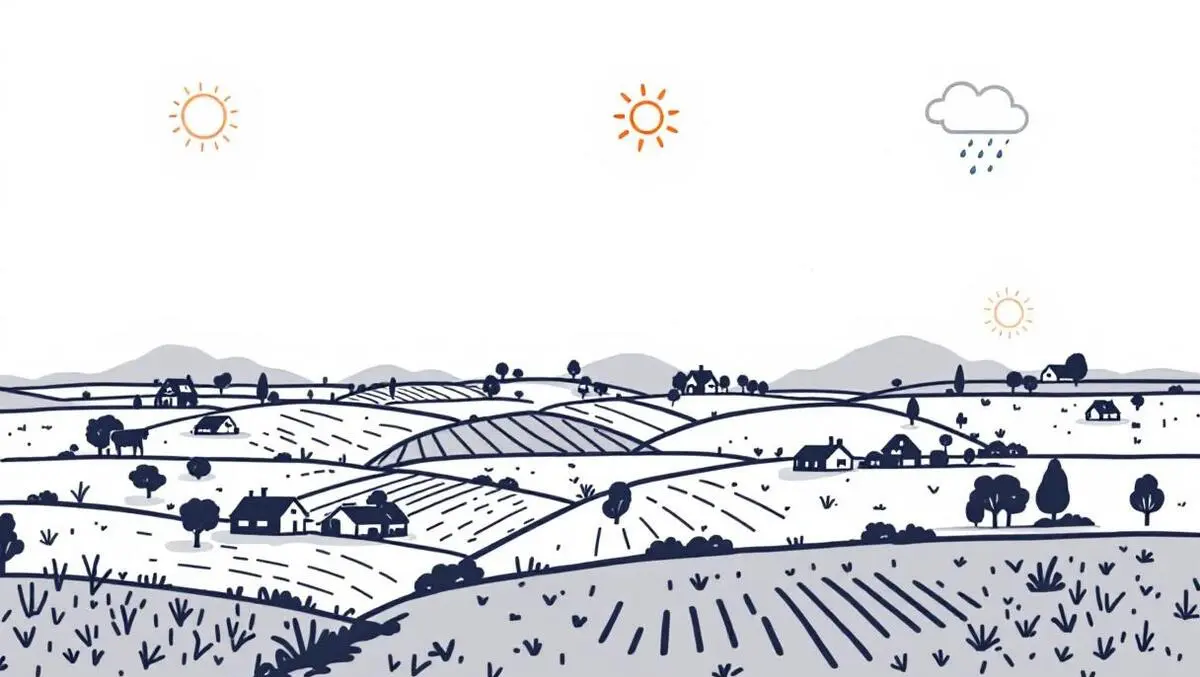
DAS launches climate dataset for rural property risk in Australia
DAS has introduced a new climate dataset package designed to aid insurers, banks, government, and property firms in managing long-term climate risks across rural Australia.
The dataset, accessible via the DAS Rural Platform, delivers climate risk assessments at the property level, focusing on variables such as rainfall variability, predictive average annual rainfall, predictive average annual temperature, and a drought index. These metrics are aimed at providing organisations with a more accurate understanding of chronic climate vulnerabilities affecting agricultural assets and regional property portfolios.
Climate risk metrics
DAS' offering is intended to address the growing need for precision in identifying and quantifying risks posed by changing climate conditions. Institutions with rural asset exposure, including insurers and banks, are expected to use the dataset for frontline risk assessments, climate stress testing of portfolios, and resilience planning.
"As climate risks increase, businesses require accurate and timely data to make informed decisions," said Anthony Willmott, CEO of DAS. "Our climate datasets deliver the precision needed to assess and manage climate vulnerabilities at property level, from large scale farming to cropping. This is not just about compliance—it's about practical risk management."
The four primary metrics—rainfall variability, predictive average annual rainfall, predictive average annual temperature, and the drought index—are designed to provide a holistic overview of long-term climate vulnerabilities, supporting both immediate analysis and strategic planning.
Addressing data limitations
The organisation outlines granularity and consistency as critical factors for climate data to be meaningful in risk decision-making. Traditional datasets, according to DAS, have often been limited by low spatial resolution and inconsistencies between providers. The new DAS dataset is structured around high spatial resolution and geospatial standardisation, intended to improve the reliability and comparability of climate risk assessments.
"Understanding the limitations of current datasets, we've focused on delivering insights that enhance clarity and support better decisions," Willmott added. "This positions us as the leading business-to-business property platform in Australia as well as the country's largest crop forecaster, with insight that goes down to property level."
Sector applications
The climate dataset is targeted at a broad range of stakeholders. Banks are anticipated to use the information for both property-specific and portfolio-level risk assessments, incorporating climate stress tests as part of prudent asset management. Insurers are expected to conduct more precise vulnerability analyses, thereby informing policy pricing and risk mitigation strategies throughout underwriting and agency operations.
For real estate and lending organisations, the data promises additional transparency around property values and the long-term investment potential of rural and regional assets. With climate-related risks continuing to influence both asset performance and insurance premiums, these insights create the basis for adaptive investment strategies and more informed lending practices.
DAS has had a presence in climate risk intelligence since launching Australia's first rural property climate risk scores in 2017. Current notable clients include Rabobank and the Australian Bureau of Statistics. The DAS platform integrates geospatial, sales, environmental, and sector-specific data, aiming to provide a consolidated interface for industry users.
"This new dataset bridges a major gap in the market. We're offering non-biased, standardised data that stakeholders can trust to inform critical decisions," Willmott said.
Support for long-term planning
The introduction of the new dataset comes amid increasing concern within Australian rural industries over property value fluctuations and insurance premium pressures linked to chronic climate conditions, such as prolonged droughts across states like South Australia and Victoria. DAS' stated aim is to provide data-driven support for the required adjustment of risk models in response to such ongoing changes.
DAS reports that its latest offering supports a growing need for reliable, property-specific data to underpin business decisions in the context of a changing climate, with resources focused on enabling sustainable investment, prudent risk assessment, and resilience planning at scale.


